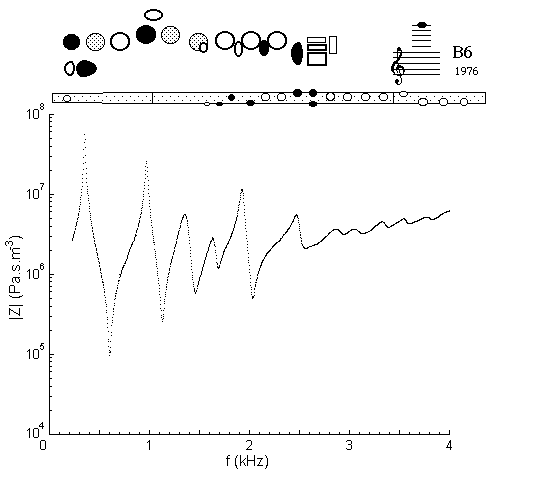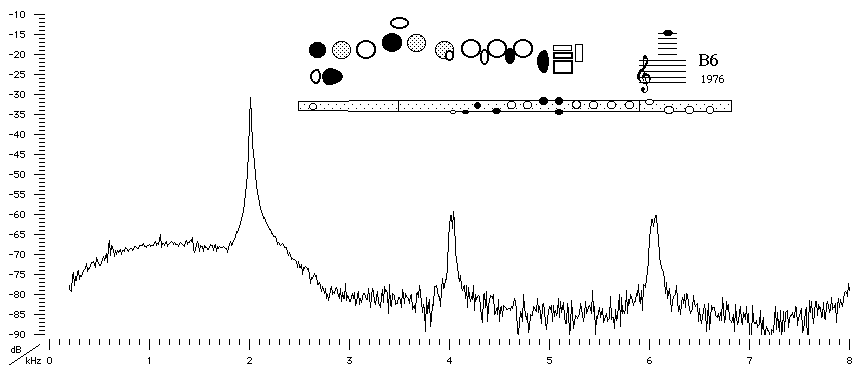| Acoustics of baroque, classical and modern flutes |
modern flute
|
B6 |

|
Fingering Acoustic schematic Non-specialist introduction
to acoustic impedance |
This fingering is comparable to that for G4 except for
the use of one of the trill keys and the LH 2nd finger key as register
holes. The register holes create a pressure node (or flow antinode) about
three quarters of the way along the pipe, and thus allows B6 but not B4, B5,
or F#6. Comparing this with the B4 impedance spectrum,
we see that the fifth minimum is a little deeper. The third and fourth are shallower
and unplayable. The first minimum plays ~D 5
and the second ~C#6 but, because it is a cross fingering for these notes, their
timbres are darker. Combinations of these three notes may be played simultaneously
as multiphonics.
5
and the second ~C#6 but, because it is a cross fingering for these notes, their
timbres are darker. Combinations of these three notes may be played simultaneously
as multiphonics.

Sound spectrum
of a modern flute with a B foot played using fingering for B6.
![]()
![]()
![]()
![]()
![]() You can hear B6
played by Geoffrey Collins.
You can hear B6
played by Geoffrey Collins.
| Acoustic measurements are available for these flutes - modern B, modern C, classical C, classical D, classical flared, baroque Sound clips are available for modern B, classical flared and baroque |
To compare flutes, it is easiest to open a separate browser window for each instrument. |